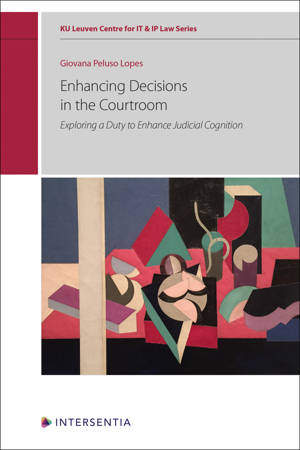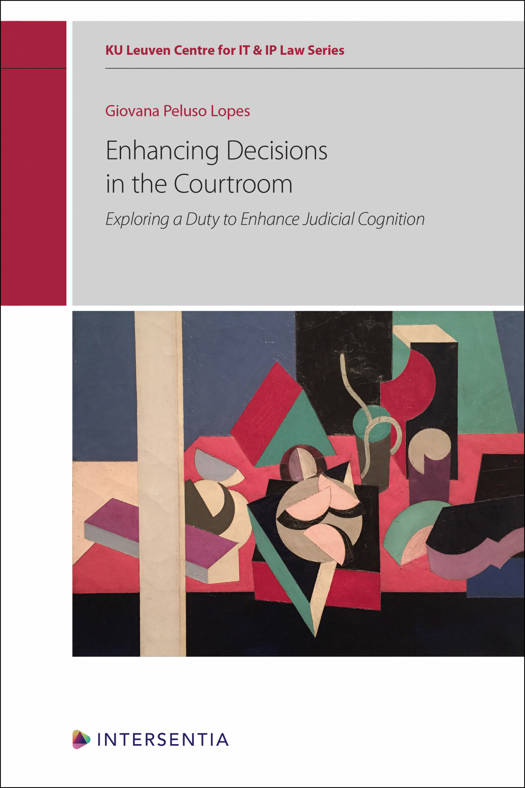
- Retrait gratuit dans votre magasin Club
- 7.000.000 titres dans notre catalogue
- Payer en toute sécurité
- Toujours un magasin près de chez vous
- Retrait gratuit dans votre magasin Club
- 7.000.0000 titres dans notre catalogue
- Payer en toute sécurité
- Toujours un magasin près de chez vous
Enhancing Decisions in the Courtroom
Exploring a Duty to Enhance Judicial Cognition
Giovana Peluso Lopes
157,95 €
+ 315 points
Description
<>This book explores possible ethical justifications for a moral duty for judges to enhance their cognition and examines how this duty sits within the existing legal framework on judicial liability, professional duties, and human rights. The impetus behind this inquiry stems from the realization, substantiated by a wealth of empirical evidence, that judges are susceptible to various implicit biases, which can subtly shape their perceptions, judgments, and decision-making processes throughout various stages of legal proceedings. Despite posing a threat to the impartiality and accuracy of judicial decisions, implicit biases remain largely unaddressed within the judiciary. Existing substantive and procedural rules designed to prevent arbitrary, partial, or inaccurate legal decisions primarily focus on the explicit manifestations of biases, neglecting to adequately address the negative effects of biases that operate beneath the level of consciousness, and which are not subject to direct introspection. Considering the profound impact of judicial decision-making for litigants and society, this book investigates the possibility of enhancing judicial cognition by various methods and technologies, and proposes a normative framework for the cognitive enhancement of judges.<>Giovana Peluso Lopes is a postdoctoral researcher on fundamental rights and artificial intelligence at the Tilburg Institute for Law, Technology, and Society (TILT), Tilburg University (Netherlands). She holds a joint PhD in Law, Science, and Technology from the University of Bologna and KU Leuven – where she was an affiliated research fellow at the Centre for IT & IP Law (CiTiP). Her research focuses on the intersection of technology and law, including the impact of AI on fundamental rights, the use of AI in the judiciary, and the law and ethics of neurotechnologies.
Spécifications
Parties prenantes
- Auteur(s) :
- Editeur:
Contenu
- Nombre de pages :
- 403
- Langue:
- Anglais
- Collection :
Caractéristiques
- EAN:
- 9781839705700
- Date de parution :
- 20-05-25
- Format:
- Livre relié
- Dimensions :
- 160 mm x 240 mm
- Poids :
- 700 g

Les avis
Nous publions uniquement les avis qui respectent les conditions requises. Consultez nos conditions pour les avis.






